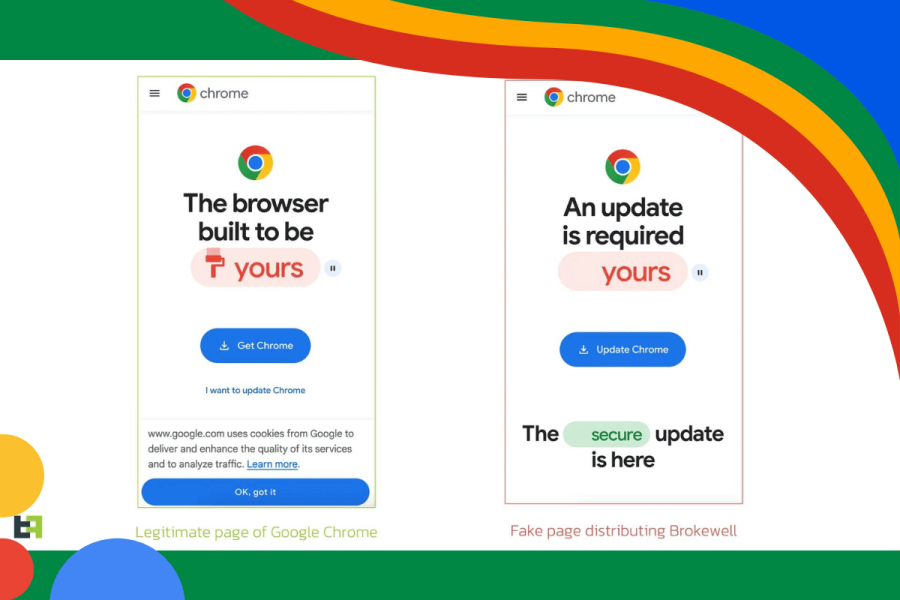Android phone users who use Google Chrome as their main browser are being warned about a severe malware currently circulating that has the potential to empty bank accounts.
Analysts at ThreatFabric recently discovered a new virus called “Brokewell,” which had extensive Device Takeover capabilities. The threat intelligence company discovered a fake browser update page designed to install an Android application. Screenshots of the two browsers showed how difficult it is to spot the fraud.
According to the security firm, it also poses a “significant threat to the banking industry,” as it provides hackers with remote access to all assets available through mobile banking.
“The Trojan appears to be in active development, with new commands added almost daily,” they stated.
Brokewell is reportedly a common modern banking virus equipped with both data-stealing and remote-control capabilities built into the malware. It uses overlay attacks, a common technique for Android banking malware, where it displays a bogus screen on a targeted application to capture user information.
Experts discovered that the malware, which copied a fake Google Chrome update, was also used alongside Klarna, a well-known “buy now, pay later” financial service, and a digital authentication application from Austria.
After stealing these details, the hackers then can initiate a Device Takeover attack using remote control capabilities. The malware performs screen streaming and provides the attacker with the ability to touch, swipe, and click on various elements.
ThreatFabric warns of the likely evolution and daily updates of the Brokewell malware, potentially offered as a rental service on underground channels. It stresses that only robust, multi-layered fraud detection systems can effectively counteract such malware, which poses significant risks to financial institution customers.
How do I know if an app has malware or is a fake app?
Cybersecurity company Kaspersky recommends taking a number of precautions before downloading an app.
- Deleting it
- Restarting your phone
- Running an antivirus
- Reporting the fake app to the relevant app store to protect others
Other steps you can take to protect yourself from fake apps include:
- Consider carefully before downloading apps, opting only for those that you find genuinely useful
When downloading apps, prioritize official app stores - If searching for a specific app, use a trusted search engine to guide you to the authentic version
- For popular apps, visit the developer’s official site and locate the appropriate link
- Always look carefully at app details—such as the developer’s identity, user reviews, and download counts—to avoid counterfeit or harmful apps
- Avoid clicking links that offer unbelievable promises
- Android users should be wary of unexpected SMS messages, alerts, or unusual requests seemingly from familiar entities—proceed with caution
- Make sure to read the fine print and understand the permissions requested by any app you download
- Also, get acquainted with the security features available on your mobile devices.
Featured image: ThreatFabric

















